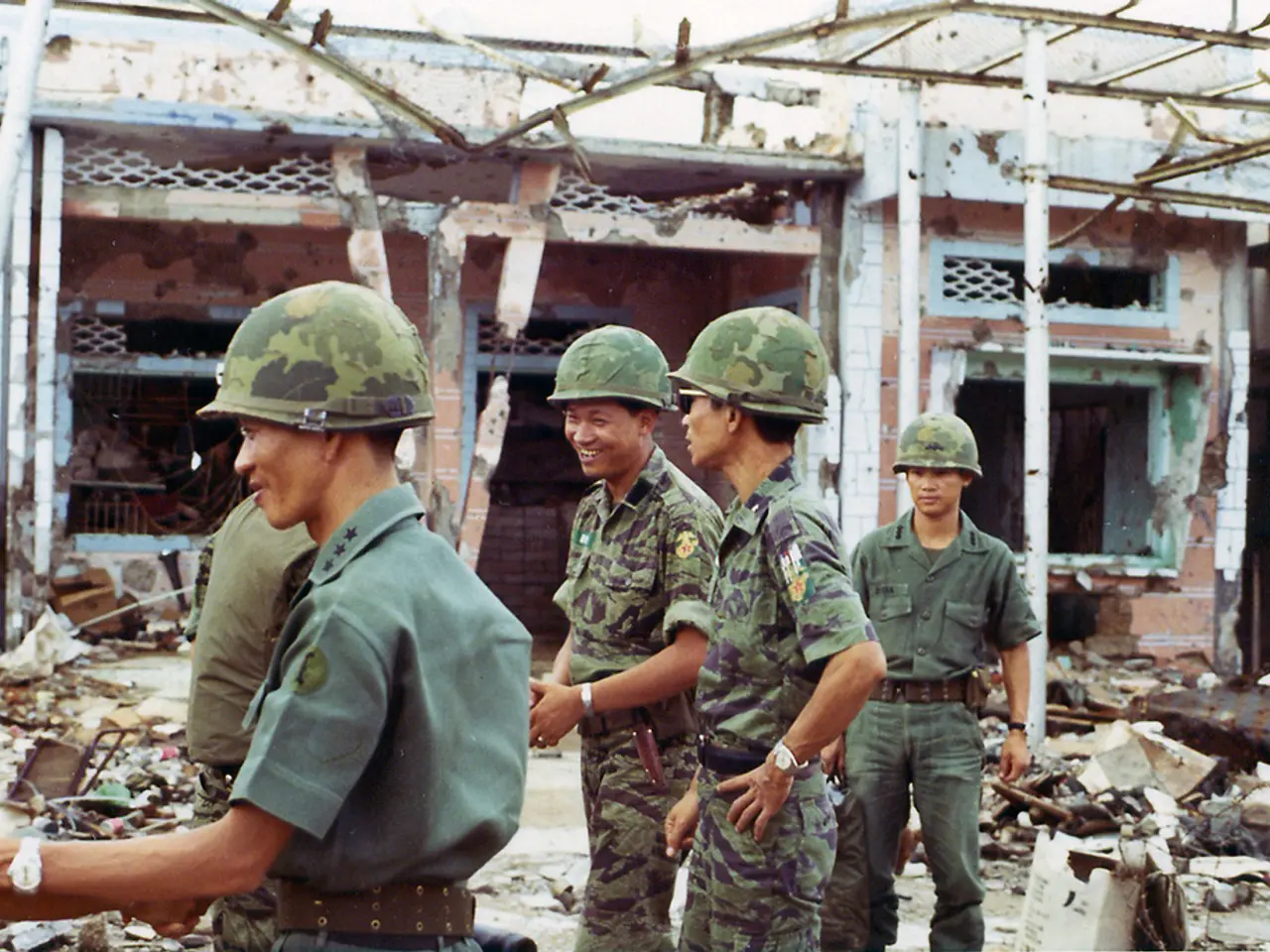Harsh Treatment Under Hamas Custody: Report Documents Starvation, Sexual Abuse, and Physical Violence
In a recent report by the Israeli Ministry of Health, the harrowing experiences of 12 hostages freed from Hamas captivity in Gaza have been detailed. The report, intended for the International Committee of the Red Cross (ICRC), highlights the ongoing health and humanitarian challenges faced by these former hostages even after their release.
The report paints a grim picture of the living conditions endured by the captives. They were confined in cramped underground tunnels, sometimes just two square meters, with extreme overcrowding or total isolation lasting over a year. The survivors described relentless sexual harassment, humiliation, and intimidation. Hygiene was virtually nonexistent; captives were allowed to shower only once every few months, often sharing a single towel.
The report reveals a pattern of severe physical and psychological abuse, starvation, and medical neglect faced by the hostages since the October 2023 conflict. Many witnessed the brutal killing of family members and friends to manipulate and break their spirits. Extreme deprivation led to dramatic weight loss, muscle wasting, vitamin deficiencies including scurvy, weakened bones, and numerous other serious health issues. Many hostages returned to Israel with gunshot wounds and shrapnel injuries sustained during the initial abduction.
Infectious diseases, respiratory ailments, and skin conditions went untreated among the hostages, causing hallucinations and chronic pain. Several hostages were bound so tightly they lost sensation in their limbs. The survivors suffer from post-traumatic stress disorder, including nightmares, flashbacks, anxiety, and deep survivor's guilt.
The psychological symptoms among survivors may worsen over time, underscoring the need for long-term care. The Ministry of Health urgently called on the International Committee of the Red Cross to provide immediate medical aid, food, and water to the remaining hostages in Gaza and to facilitate their release for proper treatment.
Israel continues to emphasize the hostages’ plight as a crime against humanity committed by Hamas. Despite international awareness, the report criticizes what it describes as insufficient global action to secure hostages' release and inadequate support for Israeli rescue efforts.
Humanitarian efforts aim to alleviate severe conditions in Gaza broadly due to extended conflict, facilitating aid delivery such as medical supplies and food, which indirectly supports hostages once freed, though access remains difficult due to ongoing hostilities and restrictions. The Israeli Defense Forces have introduced measures to improve humanitarian access, yet attacks on aid convoys continue, complicating aid delivery.
Organizations like the ICRC actively monitor and engage with the conflict parties to ensure respect for International Humanitarian Law (IHL), including protections against hostage-taking and to provide medical and humanitarian assistance where possible. The ICRC and partners coordinate care and protection services for affected populations, including former hostages.
In summary, surviving hostages suffer profound health damage and require sustained medical and psychological support as outlined by Israel's Ministry of Health. International humanitarian actors, led by the ICRC, remain engaged in delivering such support and advocating for the hostages' humane treatment and release, though conditions on the ground remain extremely challenging.
- The harrowing experiences of former hostages, freed from Hamas captivity in Gaza, have revealed the significant impact of war and conflicts on mental-health and general-news, with many survivors suffering from post-traumatic stress disorder.
- The Israeli Ministry of Health, in a report to the International Committee of the Red Cross (ICRC), emphasized the need for long-term health-and-wellness care for these survivors, including addressing chronic-diseases caused by nutritional deficiencies and severe physical abuse.
- Scientific and medical research will likely focus on the long-term effects of chronic conditions arising from war-and-conflicts and the steps to promote fitness-and-exercise and proper nutrition for affected groups like these former hostages.
- The report also highlighted ongoing political debates regarding crime-and-justice, as Israel continues to emphasize the hostages’ plight as a crime against humanity committed by Hamas.
- In addition to providing immediate medical aid, the ICRC has been engaged in political discussions with conflict parties, advocating for respect for International Humanitarian Law (IHL) and protections against hostage-taking, crucial for the health-and-wellness of those still trapped.
- News reports on general-news indicate that, despite these efforts, access to healthcare and aid is still restricted due to ongoing hostilities, making chronic-diseases management and long-term care extremely challenging for the former hostages.




